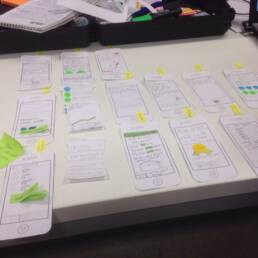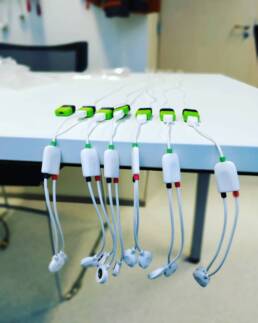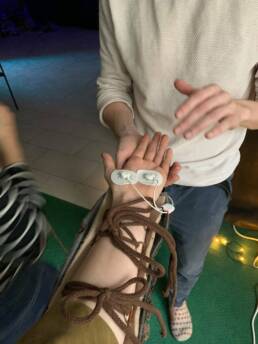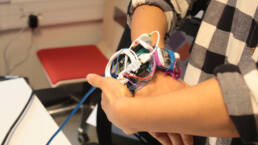Research Areas
The HCI Group is focused on four major areas of research that investigate how individuals and societies perceive and interact with information technologies.
User Experience
User experience is centred on the analysis of emergent issues that users face when interacting with and experiencing a product, system, or service. Going beyond user’s perceptions, actions, and reactions as raw data, this area of investigation applies neurophysiological responses as data for measuring user experience. Ongoing work focuses on trust and on the hedonic aspects of user experience, among them, the measurability of the user experience.
Physiological Computing
Combining computer science, neuroscience, engineering, and design for biohacking, this area of study investigates the use of biomarkers for optimizing behavior, health, and wellbeing, as well as artistic expressions. The studies are built upon personalization techniques, relying on user models and interaction adaptation through neurophysiological computing.
Body-Centric Computing
This area of study investigates the roles and the meanings of body-centric interfaces, fostering the development of adaptive technical infrastructure models for body-centric computing and enabling reasoning about body-centric interactions. Practices and research are carried out to strengthen the research agenda, vocabulary, and technology for predicting user intent when interacting with body-centric computing ecologies.
Design Theory and Methodology
This area of study is centered on sharing the knowledge, skills, and attitude to foster digital literacy and empower the use of the digital environment. The investigations are carried out on the interplay between the emerging digital technologies and HCI concepts, theories, and methods. Different approaches are applied to develop knowledge, facilitate the design of digital artifacts, and generate new understandings of the design methods to improve digital products, interactions, and services.












